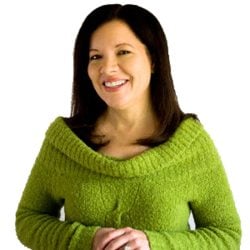Carol Fenster, Ph.D., author of nine gluten-free and allergy-free titles was interviewed on “Carla’s Cooking” on October 7, 2010. Many people do not have the time to listen to the entire one hour archived show. Perhaps this will be an easier way to digest the vital information Carol shares with us. To listen to the show click, “Gluten-Free Cooking and Baking” or read the first part below.Gluten-Free Cooking and Baking with Carol Fenster – Part 1 in a series:
Carla: Hello Everyone! I’d like to thank you all for joining us this evening. Welcome to Carla’s Cooking and I’m your host, Carla Spacher, broadcasting from the Yosemite area in Central California. Today our guest is Carol Fenster. She’s the author of 9 cookbooks and lifestyle manuals for those with food allergies, those on a gluten-free diet or have celiac disease. She’s the creator of Bob Red Mill’s gluten-free mixes and recipes and the founder and President of Savory Palate, Inc. where she teaches gluten-free and allergy-free cooking and more. Carol’s most recently published book is “100 Best Gluten Free Recipes” and that’s a collection of her most frequently asked for recipes from her original cookbook, “1000 Gluten Free Recipes”. And that book is actually the largest gluten-free cookbook ever published. And without further ado, I’d actually like to introduce you to Carol Fenster right now. Welcome Carol.
Carol: Thank you, Carla. Happy to be here.
Carla: Oh, thank you. I appreciate you joining us today. I’m honored to have you on the show.
Carol: I’m glad to be here.
Carla: Great! Um, I think many old timers in the gluten-free world, um, probably already know you or have heard of you, but for the newcomers perhaps you can tell us a little about yourself and how you got started in the gluten-free and allergy-free world.
Carol: Well, I grew up on a wheat farm in Nebraska, and um, and thought that was a pretty good way to live. Accept later in life I began having a lot of sinus congestion and nasal problems and, um, a lot of fatigue and just wasn’t feeling well. And so about 22 years ago I was finally told the reason for all my problems and it was that I was eating wheat; and I was eating a lot of wheat. So, when I stopped eating wheat, and it was the gluten in wheat that was both bothering me, all of my sinus congestion, and my brain fog and extreme fatigue and sinus infections went away. So, my lifetime lifestyle is to avoid wheat. Now, at that time, um, growing up on a wheat farm, and I married into a wheat farming family, I didn’t know anybody else who didn’t eat wheat and so, I kinda went along for 5 years not really knowing what to do. I tried changing some of my own recipes, which I did. And I eventually realized there were other people. We didn’t have the internet, like we have it. Twenty-two years ago it just wasn’t there. But I gradually met people, and I realized that there might be a need for my recipes. And so, I eventually published my first book and um, the rest, is sort of what they say, history, because now I know there are a lot of us who need to eat a gluten-free diet. So that book was published back in 1995 and I published 8 since then.
Carla: Wow! What a feat! Now I understand why they call you an expert. Most definitely! (laughter) Um, actually, I read that you’re internationally known as a gluten-free expert.
Carol: Well I consult in several other countries. I consulted in Italy, which was really lots of fun. I just returned from Mexico where I taught gluten-free cooking classes at a very lovely spa called Rancho La Puerta. And I’ve done consulting in Canada, and I’ve also traveled to Japan about four different times to consult with the Japanese people, who are also have food allergies, believe it or not, including wheat. So, um, ya, I’ve gotten to visit some wonderful countries and some wonderful people. And so, the notion is that those who cannot eat gluten are worldwide, not just here in the U.S.
Carla: Great. So do you know if Asia is larger [in numbers], compared to other, (stumble) I was going to say companies, other countries in being gluten-free or needing a gluten-free diet.
Carol: Well, I don’t know if they are larger but they have so many more people packed into the area of Japan, because that’s where I did most of my work. But interestingly, they’re more, they tend to be bothered by wheat in general. We didn’t hear as much about celiac disease though it does exist, as we did intolerances to wheat. Just, they had adopted our diet in Japan over the last couple of decades and now are paying the price, which they are eating a lot of wheat and being bothered by it. Of course, soy is one of their allergens and believe it or not, um, I think buckwheat, oddly enough. And it’s not wheat, as you know, but they eat a lot of buckwheat. So, it varies, but wheat is certainly a problem there. Yeah.
Stay tuned in for Part 2 and learn tips and tricks to gluten-free baking and more!


